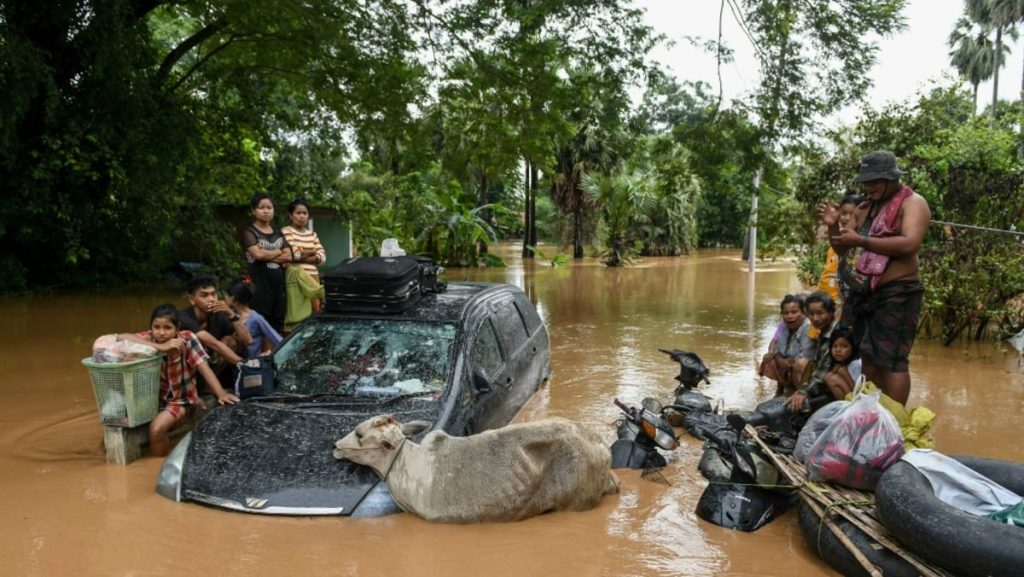The junta in Myanmar is facing an escalating crisis with a death toll of 33 and over 235,000 people displaced due to flooding in central regions, particularly around the capital Naypyidaw. Swathes of farmland have been inundated, and reports of landslides in hilly areas have made it challenging to gather information. The Sittaung and Bago rivers are still at dangerous levels, although water levels are expected to decrease in the coming days. Authorities have opened 82 relief camps to accommodate displaced people, but communication and transportation have been severely disrupted.
Thailand’s weather office issued a warning of further heavy rain in provinces along the Mekong river, adding to the challenges faced by Myanmar. The floods have compounded the existing issues in the country, where over 2.7 million people have already been displaced by conflict. The junta chief has made a rare request for foreign aid to assist with the flood relief efforts, although in the past, the military has blocked or hindered humanitarian assistance from abroad. Last year, aid groups attempting to help victims of Cyclone Mocha were met with travel restrictions imposed by the junta.
The climate crisis exacerbates the impact of heavy monsoon rains in Southeast Asia, with human-made climate change leading to more intense weather patterns and an increased likelihood of destructive floods. Typhoons are forming closer to the coast, intensifying faster, and staying longer over land as a result of climate change. A study published in July highlighted the link between climate change and extreme weather events, underscoring the urgent need for countries to address environmental challenges. The effects of climate change are felt globally, with vulnerable communities like those in Myanmar facing heightened risks and challenges as a result.
The request for foreign aid from the junta in Myanmar has drawn attention to the ongoing humanitarian crisis in the country and the need for international support in addressing the flood devastation. The UN’s Office for the Coordination for Humanitarian Affairs (UNOCHA) and the International Committee of the Red Cross (ICRC) have refrained from commenting on the request at this time. Coordinated efforts from both local and international organizations will be essential in providing relief to those affected by the floods and helping communities recover from the devastation. The urgency of the situation underscores the importance of addressing climate change and investing in sustainable solutions to mitigate the impact of extreme weather events on vulnerable populations.
The flooding in Myanmar serves as a stark reminder of the interconnectedness of environmental issues, humanitarian crises, and socio-political challenges in the region. The junta’s response to the floods will be closely watched by the international community to assess their willingness to cooperate with foreign aid agencies and prioritize the well-being of their citizens. As climate change continues to exacerbate extreme weather events, countries must work together to build resilience, reduce greenhouse gas emissions, and support vulnerable communities in adapting to the changing climate. The situation in Myanmar highlights the urgent need for collective action to address the root causes of environmental degradation and ensure the safety and security of all individuals, especially those most at risk from the impacts of climate change.


